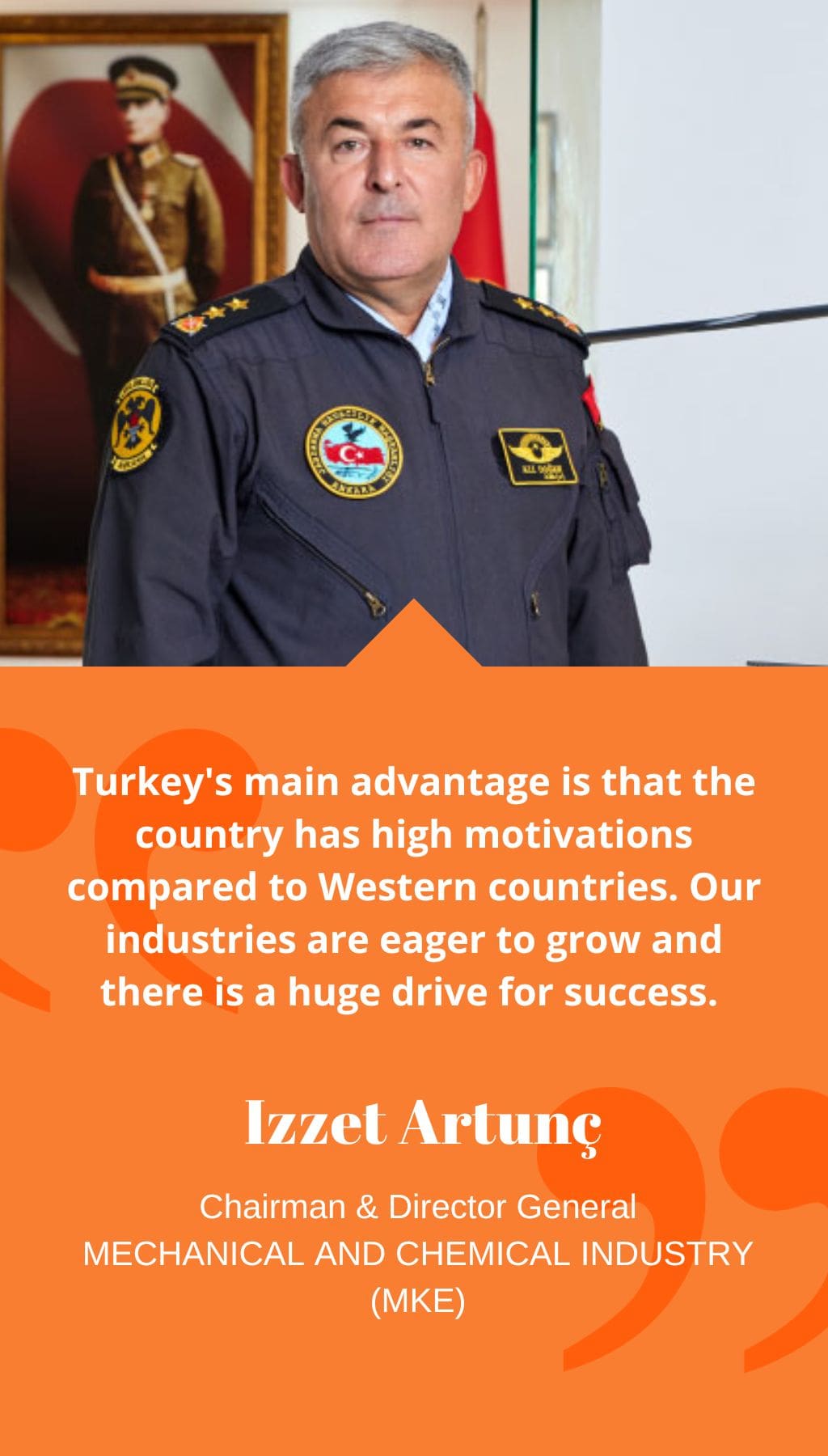
- Turkey | 28 April 2017

Can you provide a brief history of MKE in the modern era, starting from the early 2000s?
MKE has a very rich history that dates back to the Ottoman empire in the 15th century. However, after the empire dissolved, the company’s machinery and manpower were transferred to Ankara, which served as the cradle of our institutions during the independence war. After the war, MKE became the pioneer for the industrialization of the Republic of Turkey. Most factories that are currently in operation were established from the mid 1920s onwards, after which time Turkey has been led by private industrialization. MKE was initially involved with many economic activities but currently focuses all its attention on military production. The company operates 10 different factories that are mainly delegated for military purposes, and has completed over 200 research and development (R&D) projects. Currently, 117 R&D projects are being carried out with a budget of nearly 260 million Turkish lira.
How has MKE’s export strategy evolved since 2013 when its exports totaled $38 million?
MKE aims to be competitive in terms of capacity, quality, and price, and as a large institution with about 5,500 employees across 10 factories, we cannot only supply our own country’s military, making exports necessary. MKE has to be global in scale to make the institution more economic and able to compete in the global market. MKE’s exports have grown significantly since 2013. At the end of 2015, our exports totaled approximately $96 million, up from $4 million in 2000. By the year 2023, we hope to achieve a much higher level of exports for which we will need to make substantial investments and focus on training our employees to cultivate a global mentality.
Which of MKE’s divisions is most important to its business?
All four divisions including ammunitions, rockets, weapons, and explosives are equally important to MKE as the areas are interconnected and support each other. This strategy helps us maintain and increase the number of customers with whom we work, as we can provide them with complete solutions. Depending on global political circumstances, as well as political conditions of the companies to which we export, some business areas might become more significant at certain times. Recently, small ammunition and small arms production has become important as global defense expenditures are leveled. Exports of small arms and ammunition have also become more substantial, as conflict-ridden areas have undeveloped markets and lack the capacity to procure.
Please elaborate on MKE’s joint venture with Rheinmetall and how the two companies will complement each other.
Rheinmetall is a well-known company in the Western market, and sits at the forefront of the global defense market. It will be able to support MKE in R&D, and we will both cooperate on the basis of our aspirations to penetrate international markets. The main benefit will likely be the transfer of Rheinmetall’s R&D into MKE’s production capacity, while Rheinmetall will profit from MKE’s large production capabilities.
What advantages does Turkey have to help reach its ambitious 2023 goals in the global defense market?
Turkey’s main advantage is that the country has high motivations compared to Western countries. Our industries are eager to grow and there is a huge drive for success. Turkey has invested heavily in its human capital and a significant amount of resources have been allocated to education. Turkey currently has about 180 universities and has provided many incentives to attract its younger generation to educate themselves. In recent years, government investments in R&D have also been increased significantly.














